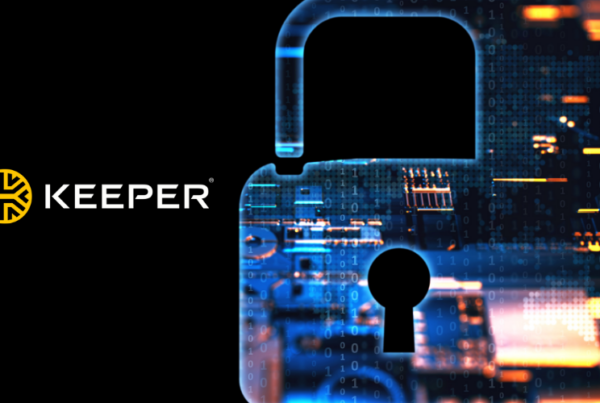With the data breach, where records from over 30 databases including stolen login credentials from Apple, Google, and Facebook have been exposed, it’s normal that some businesses might be on edge. According to Vilius Petkauskas at Cybernews, who says researchers have been investigating the leakage since the start of the year, “30 exposed datasets containing from tens of millions to over 3.5 billion records each” have been discovered.
The massive compilation of credentials was first reported on June 18, 2025, and widely covered in the media on June 20, 2025. However, with every data breach, there is a lesson. In this case, it’s the importance of proactive cybersecurity. Proactive cybersecurity can save your business from disaster and keep the trust between your business and customers.
What Happened During the Recent Breach?
Up to 3.5 billion credentials from social media and VPN logins to developer and corporate platforms were among the stolen records from more than 30 databases.
Because fraudsters now have access to a vast number of login passwords, the current data breach contains a vast amount of information that might impact billions of internet accounts. This exposes consumers to more harmful activities, such as identity theft, social engineering, and phishing attacks.
What Can Businesses Learn From the Recent Data Breach?
The recent password data breach involving major companies serves as a critical reminder of just how vulnerable digital systems can be, regardless of size or reputation. For businesses, this incident highlights the need for strong, proactive cybersecurity practices that go beyond the basics. It stresses the importance of enforcing secure password policies, using multi-factor authentication, regularly auditing access controls, and educating staff on phishing and social engineering tactics. By learning from the weaknesses exposed in high-profile breaches, companies can strengthen their defences and reduce the risk of becoming the next target.
What Steps Should Businesses Take Now to Improve Cyber Resilience?
To improve cyber resilience, businesses should start by conducting a thorough risk assessment to identify their most vulnerable systems and data. Implementing multi-factor authentication (MFA), encrypting sensitive data, and keeping all software and systems up to date with the latest security patches are essential first steps.
It’s also critical to create a robust incident response plan so the team knows exactly what to do in case of a breach. Regular employee training on cybersecurity best practices, such as spotting phishing emails and using secure passwords, is equally important. Finally, businesses should consider running penetration tests and security audits to ensure their defences are working as intended.
The Importance Of Proactive Cybersecurity For Businesses
Proactive cybersecurity means staying ahead of threats instead of simply reacting to them. For businesses, this approach is crucial in today’s digital landscape, where cyberattacks are becoming more frequent and sophisticated. By investing in preventive measures like firewalls, endpoint protection, threat monitoring, and staff training, businesses can drastically reduce their risk of breaches. Proactive strategies also help build customer trust, ensure regulatory compliance, and protect valuable assets and data. Simply put, being prepared is not just a good practice; it’s a business necessity.
What Are the Benefits Of Proactive Cybersecurity?
These guidelines show you how to approach your cybersecurity program proactively. However, once you start putting them into practice, you could be wondering what the results should be. A proactive cybersecurity strategy has many advantages, such as but not limited to:
- Reduced Risk: Reducing risk is the top priority in any cybersecurity program. Your risk will decrease, and you won’t feel as though you’re hopping from one firefight to another by concentrating on this proactive technique.
- Improved Resilience: Your business and team will be ready for any attack or incident because this proactive approach also acts as beneficial training.
- Security ROI: There is no surefire way to prevent a data breach, and the consequences can be severe. However, being proactive will help you determine where to invest your security budget, advise you on how effectively to use your resources, and show you how your efforts are directly affecting your risk posture.
- Regulatory Compliance: Numerous compliance frameworks already mandate security testing in one way or another. You will not only meet many or all of those standards by implementing a proactive testing methodology, but you will also find new problems that impact other compliance controls.
Proactive Cybersecurity Tactics
Instead of only responding to problems after they happen, proactive cybersecurity strategies entail putting policies in place to stop cyberattacks before they happen. This strategy places a strong emphasis on finding and fixing vulnerabilities, keeping hardware and software updated, and keeping an eye out for unusual activity on systems. Here are some proactive cybersecurity tactics:
- Risk assessment and management: Assess the systems, networks, and apps used by your company on a regular basis to find any vulnerabilities that an attacker might exploit.
- Threat intelligence and monitoring: Stay informed about the most recent vulnerabilities, attack methods, and cyberthreats. To get real-time alerts on new threats, incorporate threat intelligence feeds into your security systems.
- Security awareness training: Employees should receive frequent security awareness training on subjects like phishing, password security, and safe browsing techniques. Encourage a security-conscious workplace culture where staff members are empowered to recognise and report any risks.
- Incident response planning: Make a thorough incident response plan that specifies what should be done in the case of a security breach. To make sure your incident response strategy is working, test it frequently using simulations and tabletop exercises.







